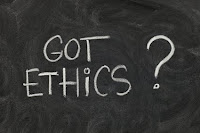Making a list of things to do at the beginning of the day is usually a useful exercise for me, especially when I am extremely busy like now with web work, or when I am in the middle of grant writing.
If I don’t make myself a list, I find myself blundering about chasing windmills and perhaps not finishing something important or failing to finish something from the day before.
I like my lists and I draw a blue line through finished tasks with a highlighter as I complete each one. It makes me feel more competent to finish things and be able to cross them out throughout the day.
Of course there are days like today when things not on my list intrude and rudely insert themselves into my neatly ordered agenda for the day. I have fourteen things on the list today and I’ve only crossed off two of them. And besides my walk I have worked steadily. I’m not sure what all I did or why it was so important, but I got it done and it’s not on the list and now I am a little panicked that I haven’t made nearly as much progress on what I decided was important at the start of the day.
What to do, what to do? I could refocus and begin a new eight hour shift working into the night, but I’ve already eaten the last piece of fruit in my lunchbox and the rest of my provisions are far away in my kitchen.
So I’ll probably have to start with the same list (-3 now, this blog post is another item HA!) tomorrow that I am finishing with today. I don’t feel as competent as I do on days when there is only one leftover task.
But that’s life isn’t it? Sometimes things just go the way they’re expected, sometimes good planning is interrupted by new realities, and sometimes, work simply has to end in order to answer the call of the grumbling stomach and drive home for some chips and salsa.
———————
This post was contributed by Non-Profit Consultant and Expert Grant Writer, Derek Link.
———————
Free e-book —Using Social Media to Increase Your Business
Online Seminar! Secrets of Successful Grant Writers






